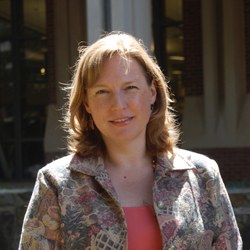FACULTY SPOTLIGHT: Jean Cook, Ph.D.
Jean Cook, Ph.D, leads a team of dynamic researchers in the Biochemistry and Biophysics Department at the University of North Carolina at Chapel Hill. Her group explores unique aspects of basic cell proliferation control.

Our bodies are built of trillions of cells, and they need to be replaced when they become damaged or worn out through the proliferation (division) of healthy cells. On the other hand, if cells divide when they aren’t needed, then cancers can arise. Much has been learned about the steps required to generate new cells, but there is still so much more that is not yet understood. For example, how is the complete set of cellular instructions -the DNA – replicated precisely so that each new cell gets an accurate copy? How is information in the form of growth signals and anti-growth signals used to determine when and how the different steps of the cell division cycle should take place? Dr. Cook’s team are using modern tools of molecular and cell biology to address these fundamental questions. Success is likely to have an impact on medically relevant fields such as regeneration, aging, developmental biology, and cancer.
In recent years Dr. Cook and her lab have made discoveries about how specific enzymes and factors required for DNA to be replicated are controlled so that they are only active at the appropriate times. The team have untangled several thorny knots about how the various molecular activities are coordinated so that the steps of cell division happen in the exact right order and at the right time. When that order and timing are not exactly right, cells can either become damaged or grow out of control. The team have developed sophisticated ways of precisely measuring multiple parameters at the same time in single human cells. Some experiments involve simultaneously quantifying the amounts and location of several molecular entities in thousands of individual cells. This technique is revealing surprising differences within a population of cells that were previously assumed to be identical. In another set of projects, the Cook lab are generating fluorescent markers that light up in different colors depending on what is going on inside the cells. Time lapse movies of these cells reveal the choreography of sequential cell proliferation steps such as DNA replication in real time. This cellular “cinematography” is more than just fun to watch, because it identifies how the dynamics of cell proliferation is coordinated in normal cells or is uncoordinated in cancer cells. The lab is systematically analyzing the effects of changing to individual genes to recapitulate both normal and pathological settings.
Dr. Cook has been recognized throughout her career for research excellence with awards such as the Howard Temin Award from the National Cancer Institute, the Jefferson Pilot Award from the UNC School of Medicine, and a collaborative research award from the W.M. Keck Foundation. Dr. Cook also has a leadership role as Associate Dean for Graduate Education in the UNC School of Medicine. In that role she oversees an extensive suite of training resources for graduate students such as career exploration programs and biomedical workforce development initiatives. She directs an umbrella program responsible for the first year of training for UNC biomedical PhD students as they choose which of 14 different graduate programs – such as Biochemistry and Biophysics – best matches their scientific interests and career goals.
Dr. Cook is a proud alumna of the University of North Carolina at Chapel Hill where she earned her bachelor of science degree in biology with honors. She completed doctoral training at the University of California, Berkeley, and her post-doctoral training at Duke University. She started her independent lab at UNC in 2004 and was promoted to full Professor in 2016.
